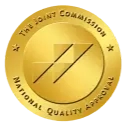Drug and Alcohol Detox Center
The number one fear of most people considering entering a drug detox center is usually the physical withdrawal symptoms. The reality is that a medical detox at an addiction treatment center involves sophisticated protocols and medicines to help ensure both comfort and safety.
This article takes a look at the medications and procedures used at a detox center to help keep patients comfortable.
What Are Detox Medications For Exactly?
When a person enters addiction treatment, they generally begin their care at a drug rehab. Well-established facilities, like Atlanta Detox Center, operate their own alcohol and drug detox facility on-site. Smaller rehab programs sometimes contract with an outside detox center to care for their patients during this phase and then discharge and transfer them to another facility for continued treatment at the residential or partial hospitalization level of care.
The medical detox process is designed to address both the safety and comfort of patients who have recently stopped using drugs or alcohol. Depending on the severity of someone’s addiction, psychological and physical withdrawal symptoms may begin within hours of their last drink or drug use. Detox medications are used to help sharply reduce these symptoms to keep the patient comfortable and for their safety.
Without detox center medications:
- Physical withdrawal symptoms can be very uncomfortable and even dangerous.
- Relapse can become a serious risk as a patient’s level of discomfort and cravings climbs.
- Patients often feel anxiety and have difficulty sleeping and getting the rest they need.
- Withdrawal from alcohol, benzodiazepines, or barbiturates can be potentially deadly.
Which Medications Do They Use At A Detox Center and Why?
An inpatient drug treatment program like Atlanta Detox Center will have a wide range of medicines and supplements on hand. These medications, vitamins, and minerals all serve important functions. The first order of business is the person’s safety. Certain drugs like alcohol and benzodiazepines can have particularly dangerous withdrawal symptoms.
Medicines to reduce anxiety and prevent the possibility of seizures in withdrawal are often used in those cases. Drug and alcohol abuse in general has some pretty harsh effects on the human body. Patients may be dehydrated, constipated, or have diarrhea and/or nausea. They may also have muscle aches, cramps, or spasms. All of these symptoms and many others can be mitigated with a medical detox protocol that will include a variety of detox meds.
A medical drug or alcohol detox with 24-hour medical supervision, like the one we offer at Atlanta Detox Center, is considered the safest and most practical approach for most people. This enables staff to respond to any symptoms or changes in vitals in real time. Patients admitted to our facility are given a comprehensive evaluation which will inform their individualized detox protocol and which medicines they are given.
Some medications and supplements often used at detox centers include:
Benzodiazepines:
Benzodiazepines are commonly used for relieving withdrawal symptoms associated with alcohol or other sedatives. Benzos not only reduce anxiety and restlessness — they also serve the critical role of preventing seizures. Dosage varies depending on the severity of withdrawal symptoms and medical history. The side effects of benzos may include drowsiness, dizziness, and confusion. Examples of benzos that may be used at a detox include Valium and Librium.
Alpha-2 Agonists
Alpha-2 agonists work by reducing levels of a neurotransmitter called norepinephrine. Normally norepinephrine is helpful in focus and concentration. But withdrawal from alcohol and other drugs can cause norepinephrine levels to get too high which leads to high blood pressure and anxiety. Alpha-2 agonists are sometimes used for patients who cannot take benzodiazepines. Clonidine is one example of an alpha-2 agonist.
Naltrexone:
Naltrexone is a medicine that’s often seen in detox centers and medication-assisted treatment (MAT) programs. It works by blocking opioid receptors in the brain. Naltrexone can be helpful for other addictions in part because it can reduce cravings. Naltrexone occupies receptors for so-called “pleasure chemicals” in the brain. This allows it to both reduce cravings and block the euphoric effects of opioids and other drugs.
Acamprosate:
Acamprosate balances brain chemistry which can be disrupted by long-term alcohol and drug use. The imbalance occurs between excitatory (alertness) and inhibitory (calmness) activity in the brain. It’s most often used as an alcohol detox medication. Acamprosate is also believed to help reduce cravings for alcohol.
Anticonvulsants:
Anticonvulsants are medications designed to offset tremors or convulsions. They are sometimes used with benzos (or instead of them) to ward off these withdrawal symptoms. They work by calming excess electrical activity in the brain that may cause seizures. Side effects can include dizziness, nausea, and blurred vision. Examples of anticonvulsants include Carbamazepine and Gabapentin.
Beta-Blockers
Most people associate beta-blockers with heart problems, but they are also used in detox center protocols, especially for alcoholism. Beta-blockers block the effects of adrenaline, and that can lower high blood pressure and slow the rapid heart rate sometimes happens when someone is in alcohol withdrawal. Some examples of beta-blockers are Atenolol and Propranolol.
Vitamins and Supplements:
Long-term addiction often leads to lifestyle changes which can include poor nutrition and under or overeating. The effects of alcohol and certain drugs can also deplete the body’s supply of some important nutrients that are critical to human health. Supplements like Vitamin B1, Folic Acid, and multivitamins are often provided alongside detox medications to help replenish nutrients and prevent potential complications of alcoholism like Wernicke-Korsakoff syndrome also known as wet brain.
Atlanta Detox Center Offers Freedom From Addiction
Atlanta Detox Center is Georgia’s premier drug and alcohol treatment program. If you or someone you love is ready to stop letting addiction call the shots, we’re here to help. Atlanta Detox Center offers hotel-like accommodations and comprehensive medical detox support. Together with our partner programs, we offer a complete continuum of care for substance use disorders.
You and your loved ones deserve the Atlanta Detox Center standard of care. Give us a call at (470) 450-2355 or reach out to us via our Contact Page to begin a better life today.






